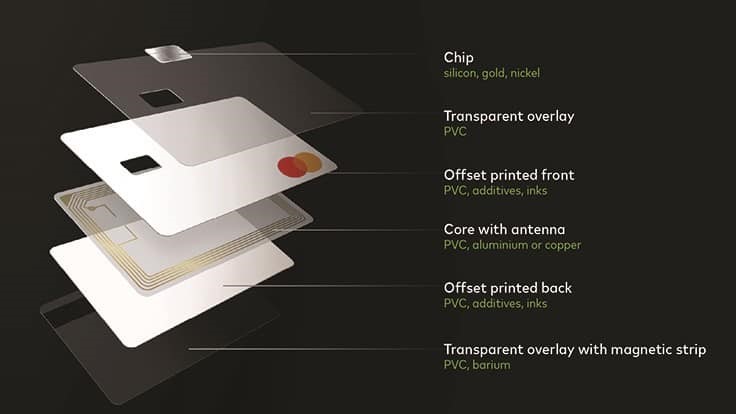Waste Today Magazine, Posted by Adam Redling June 4, 2021
Mastercard announced that it has created a new badge to identify cards made more sustainably from recyclable, recycled, bio-sourced, chlorine-free, degradable or ocean plastics.
Mastercard, New York City, announced that it has created a new badge to identify cards made more sustainably from recyclable, recycled, bio-sourced, chlorine-free, degradable or ocean plastics. Easy to spot on the card, the badge is a simple reminder of the commitments made to address sustainability concerns, the company says.
“People want brands to behave in more sustainable and ecofriendly ways. But, making it happen across extended supply chains with multiple partners can be trickier than setting a goal,” says Ajay Bhalla, president of Cyber & Intelligence, Mastercard. “With this sustainable badge, certification and recycling program, we have a real chance to address each of these issues and bring trust to sustainable choice as we collectively move towards a more circular economy.”
The Mastercard Sustainable Materials Directory, established last year, aims to help issuers offer more ecofriendly cards to consumers. More than 100 financial institutions, including Spain-based Banco Santander and U.K.-based Starling Bank, offer Mastercard sustainable card programs in over 30 countries.
Mastercard says that producing cards made from more sustainable materials has become a focal point for the company. To extend the impact of these efforts, Mastercard and Giesecke+Devrient (G+D), Munich, have developed a new program that helps people easily recycle their cards.
How the certification and recycling program works
Cards carrying the sustainable card badge will be verified by an independent certification program that assesses sustainability claims. Using current industry benchmarks, cards will be certified if they meaningfully reduce energy consumption, material consumption, carbon footprint and waste. Each year, the benchmarks will improve as overall sustainability levels improve, continuing to contribute to better environmental management.
Mastercard and G+D will deliver recycling solutions that can be optimized for specific issuer, market and material needs. This builds on the Greener Payments Partnership (GPP) formed in 2018 to reduce first-use PVC plastic in card manufacturing.
“Our vision for our sustainability offering goes beyond the production of an eco-card,” explains Mikko Kähkönen, who is responsible for the smart cards portfolio at G+D. “Our purpose is to offer our bank clients the services they need to implement their own sustainability strategy, and also to tackle industry challenges such as the recycling of payment cards. A fast-growing number of eco-conscious consumers are demanding from G+D, from banks and from industry leaders such as Mastercard that they collaborate towards such solutions to serve future generations and protect our environment.”







